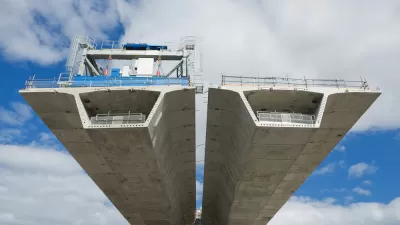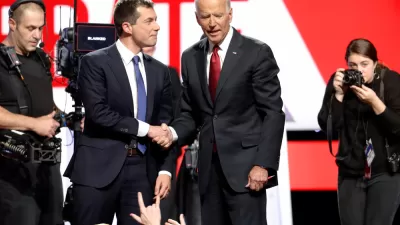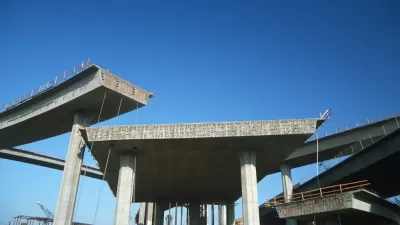The U.S. Department of Transportation announced funding winners for the BUILD grant program, which replaced TIGER this year. The differences between the two programs are immediately obvious.

"U.S. Transportation Secretary Elaine L. Chao today announced $1.5 billion in discretionary grant funding to 91 projects in 49 states and the District of Columbia," according to a U.S. Department of Transportation press release. "The grants are made through the Better Utilizing Investments to Leverage Development (BUILD) Transportation Grants program and support road, rail, transit, and port infrastructure projects across the country."
Savvy readers will recall that BUILD grants were announced as a replacement for TIGER grants back in summer of 2018.
According to the press release, and immediate difference between TIGER and BUILD is in the latter's investments in rural communities. "In this round, in which 59 percent of the applications were for rural projects, 62 projects were awarded to rural grant applications," according to the release.
The press release also includes a complete list of grant winners.
Update: Michael Laris provide news coverage of the BUILD grant funding announcement for The Washington Post. Also, Angie Schmitt provides analysis of the news for Streetsblog USA.

Study: Maui’s Plan to Convert Vacation Rentals to Long-Term Housing Could Cause Nearly $1 Billion Economic Loss
The plan would reduce visitor accommodation by 25,% resulting in 1,900 jobs lost.

North Texas Transit Leaders Tout Benefits of TOD for Growing Region
At a summit focused on transit-oriented development, policymakers discussed how North Texas’ expanded light rail system can serve as a tool for economic growth.

Why Should We Subsidize Public Transportation?
Many public transit agencies face financial stress due to rising costs, declining fare revenue, and declining subsidies. Transit advocates must provide a strong business case for increasing public transit funding.

How to Make US Trains Faster
Changes to boarding platforms and a switch to electric trains could improve U.S. passenger rail service without the added cost of high-speed rail.

Columbia’s Revitalized ‘Loop’ Is a Hub for Local Entrepreneurs
A focus on small businesses is helping a commercial corridor in Columbia, Missouri thrive.

Invasive Insect Threatens Minnesota’s Ash Forests
The Emerald Ash Borer is a rapidly spreading invasive pest threatening Minnesota’s ash trees, and homeowners are encouraged to plant diverse replacement species, avoid moving ash firewood, and monitor for signs of infestation.
Urban Design for Planners 1: Software Tools
This six-course series explores essential urban design concepts using open source software and equips planners with the tools they need to participate fully in the urban design process.
Planning for Universal Design
Learn the tools for implementing Universal Design in planning regulations.
Ascent Environmental
Borough of Carlisle
Institute for Housing and Urban Development Studies (IHS)
City of Grandview
Harvard GSD Executive Education
Toledo-Lucas County Plan Commissions
Salt Lake City
NYU Wagner Graduate School of Public Service




























